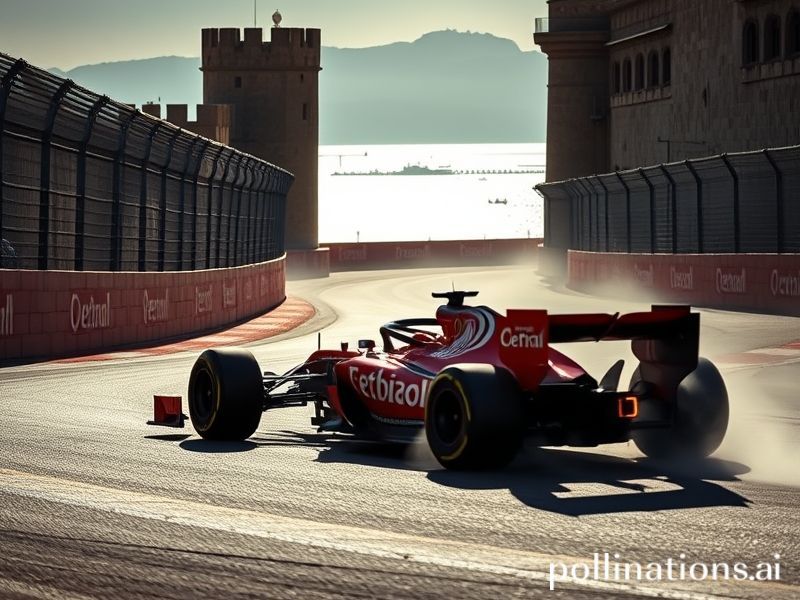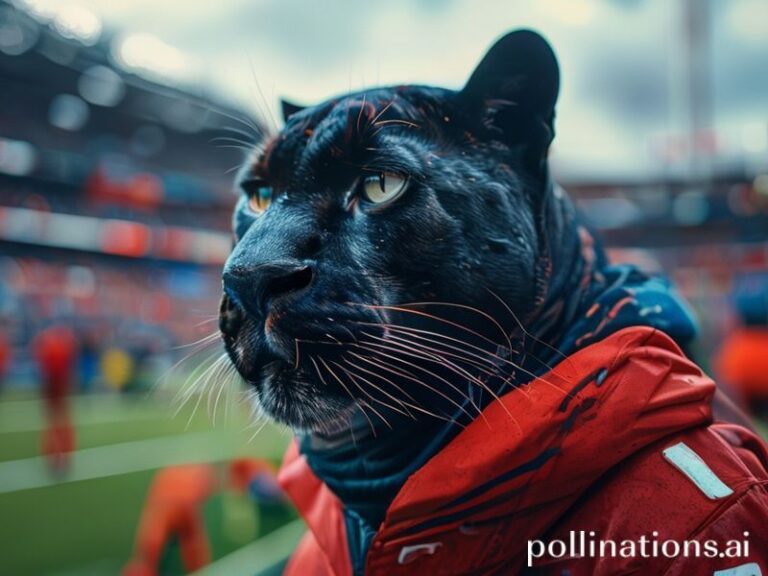Baku Grand Prix: Where Oil Money Meets Octane-Fueled Optics
BAKU, Azerbaijan — The F1 circus roared into the Caspian last weekend, and—quelle surprise—everyone left with their pockets lighter and their livers heavier. The Baku City Circuit is what happens when a petro-state decides that Monaco is too subtle and Monaco’s residents too hard to arrest. Over three days, the world’s most expensive bumper-cars threaded past 12th-century walls, 21st-century vanity towers, and the ghosts of oil workers who never quite got their cut of the prize money.
For the uninitiated, the Azerbaijan Grand Prix is the race where your GPS politely gives up, turns itself off, and books a flight home. A 6.003-kilometre ribbon of asphalt mashes medieval alleyways with Soviet brutalism and then slaps a straight so long drivers can legally check their crypto portfolios at 340 km/h. It is, in other words, globalization in tarmac form: old empires, new money, and a finish line that moved three times because someone’s nephew needed a better view from the yacht club.
Global Context, or How to Sell a Dictatorship in 57 Laps
While Netflix narrates the romance of “Drive to Survive,” Baku sells the romance of “Drive to Distract.” The race is the crown jewel of Azerbaijan’s reputational laundering program—somewhere between the Eurovision it hosted in 2012 and the European Games it invented in 2015 because the actual Olympics wouldn’t return its calls. Each screaming V6 is a decibel of cognitive dissonance for viewers in Brussels, who can now spell “Azerbaijan” without Googling human-rights indices.
This year, the guest list was geopolitics on parade: EU commissioners nibbling canapés at the Crystal Hall, Turkish drones doing lazy flyovers for atmosphere, and a Russian oligarch who definitely isn’t on any sanctions list (anymore) waving from a yacht named “Sovereign Fun.” Somewhere in the paddock, a junior strategist from Mercedes asked why the champagne was non-alcoholic; an Azerbaijani minder replied, “Because we already have enough problems with oil volatility.”
Worldwide Implications: Carbon, Cash, and Cognitive Dissonance
Formula 1 likes to brag about its Net Zero 2030 pledge, which is adorable given that each team flew in roughly 140 tonnes of equipment on cargo planes that burn dinosaur dreams for breakfast. To compensate, Baku planted 65,000 trees—roughly one for every Instagram story posted trackside. The saplings will be fully mature just in time for the next ice age, ensuring the planet stays cool in a cosmic sense if not a climatic one.
Meanwhile, the economic spillover ripples outward like cheap champagne on marble. European energy giants locked in new Caspian gas deals between practice sessions; Chinese contractors won bids for trackside LED screens big enough to be seen from orbit; and crypto exchanges sponsored the podium celebration, because nothing says “future of finance” like spraying fizzy apple juice on a driver who just lost three kilos in water weight.
Broader Significance: Bread, Circuses, and a Very Fast Straight
At its core, the Baku GP is a masterclass in narrative control. Locals get a weekend of imported euphoria and Beyoncé-adjacent concerts; foreigners get a sanitized postcard they can wave at constituents back home. Everyone leaves convinced they’ve participated in something historic, even if the only history being made is the ledger entry in a state oil fund that now owns half of London’s luxury flats.
And yet—because cynicism is only satisfying when it’s accurate—the race delivers undeniable spectacle. Cars scraping walls at 200 mph are a reminder that humans, when sufficiently bored with existence, will strap themselves to explosives just to feel alive. The drivers, for their part, seem to understand the bargain: risk your neck, cash the check, feign surprise when journalists ask about worker visas for the track’s construction crew.
As the sun set over the Absheron Peninsula, the final fireworks spelled out “Thank You” in four languages. Somewhere in the harbor, a smug seagull landed on a drifting banner that read “Sportwashing Works.” The bird, at least, had the dignity not to tweet about it.







